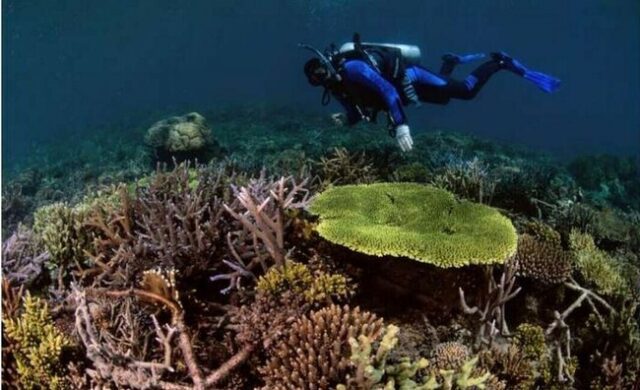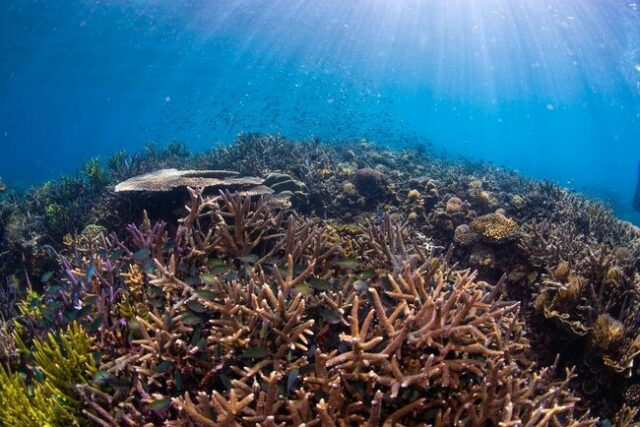
In a groundbreaking revelation, researchers investigating coral restoration efforts in Indonesia have uncovered a remarkable phenomenon: artificially restored coral reefs can achieve full recovery within a mere four years, rivaling the growth rates of naturally occurring reefs. This astonishing discovery brings hope to the conservation of coral ecosystems worldwide, particularly in the face of escalating threats such as stronger storms and acidic seas. The study, conducted at the Mars Coral Reef Restoration Program in South Sulawesi, Indonesia, showcases the transformative potential of human intervention in reversing decades of damage inflicted upon coral reefs, once reduced to rubble by dynamite fishing.

Led by an international team of marine biologists, the project utilized innovative techniques such as affixing “reef stars” to the seafloor, providing a scaffold for coral larvae to establish and thrive. Through meticulous monitoring and the novel use of carbonate budget calculations, researchers observed a threefold increase in net carbonate budgets within four years of coral transplantation, mirroring the rates seen in healthy reef ecosystems. Despite concerns over reduced species diversity compared to natural reefs, the unprecedented speed of recovery underscores the efficacy of restoration efforts and offers a beacon of hope for coral reef conservation. This milestone not only underscores the resilience of coral ecosystems but also underscores the importance of swift action in mitigating the impacts of climate change to safeguard these vital marine habitats for future generations.














